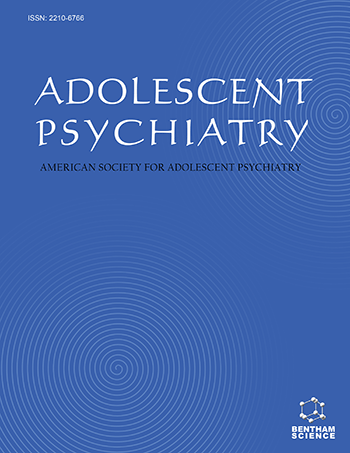Abstract
Until bright, creative, and alienated adolescents learn to make reasonable decisions, they will not engage in proactive, constructive, and creative change. Grounded in principles of reality therapy and choice theory, compassionate confrontation psychotherapy (CCP) stresses the concepts of conscious choice and acceptance of responsibility for ones actions. CCP provides a unique therapeutic experience to induce change. Viewed from this pragmatic and humanistic perspective, the overuse of psychiatric diagnoses and psychopharmacologic treatments inadvertently relieve gifted adolescents from accepting accountability for their choices. Evidence of the success of CCP can be found in the high percentage of alumni of the John Dewey Academy who are admitted to and complete their educations at leading colleges and graduate schools. Further evidence is provided by their academic performances at those institutions of higher learning.
Keywords: Adolescent psychotherapy, confrontation in psychotherapy, gifted adolescents, adolescent behavior disorders, CCP, alienated, Boarding School, Self-Destructive, Compassionate, gifted
Adolescent Psychiatry
Title: Compassionate Confrontation Psychotherapy: Working with Gifted but Self-Destructive Adolescents in a Therapeutic Boarding School
Volume: 1 Issue: 3
Author(s): Thomas Edward Bratter
Affiliation:
Keywords: Adolescent psychotherapy, confrontation in psychotherapy, gifted adolescents, adolescent behavior disorders, CCP, alienated, Boarding School, Self-Destructive, Compassionate, gifted
Abstract: Until bright, creative, and alienated adolescents learn to make reasonable decisions, they will not engage in proactive, constructive, and creative change. Grounded in principles of reality therapy and choice theory, compassionate confrontation psychotherapy (CCP) stresses the concepts of conscious choice and acceptance of responsibility for ones actions. CCP provides a unique therapeutic experience to induce change. Viewed from this pragmatic and humanistic perspective, the overuse of psychiatric diagnoses and psychopharmacologic treatments inadvertently relieve gifted adolescents from accepting accountability for their choices. Evidence of the success of CCP can be found in the high percentage of alumni of the John Dewey Academy who are admitted to and complete their educations at leading colleges and graduate schools. Further evidence is provided by their academic performances at those institutions of higher learning.
Export Options
About this article
Cite this article as:
Edward Bratter Thomas, Compassionate Confrontation Psychotherapy: Working with Gifted but Self-Destructive Adolescents in a Therapeutic Boarding School, Adolescent Psychiatry 2011; 1 (3) . https://dx.doi.org/10.2174/2210676611101030227
| DOI https://dx.doi.org/10.2174/2210676611101030227 |
Print ISSN 2210-6766 |
| Publisher Name Bentham Science Publisher |
Online ISSN 2210-6774 |
 19
19
- Author Guidelines
- Graphical Abstracts
- Fabricating and Stating False Information
- Research Misconduct
- Post Publication Discussions and Corrections
- Publishing Ethics and Rectitude
- Increase Visibility of Your Article
- Archiving Policies
- Peer Review Workflow
- Order Your Article Before Print
- Promote Your Article
- Manuscript Transfer Facility
- Editorial Policies
- Allegations from Whistleblowers
Related Articles
-
Editorial: Thinking About Thinking, the Self, and the Adolescent’s Search for Meaning
Adolescent Psychiatry Trauma, Adolescent Transformation, and Parenthood
Adolescent Psychiatry Commentary: ADHD and Substance Abuse
Adolescent Psychiatry Judging Children as Children
Adolescent Psychiatry Bipolar Affective Disorder in Young People: A Review
Adolescent Psychiatry Professionalism and Adolescent Psychiatry in the Digital Age
Adolescent Psychiatry Editorial: Upwards and Downwards: Advancing Knowledge in Adolescent Psychiatry
Adolescent Psychiatry The Effects of Mindfulness-Based Interventions on Sleep Disturbance: A Meta-Analysis
Adolescent Psychiatry Strategies for Autism Diagnosis and Care in Resource Deprived Settings in Africa: An Overview
Adolescent Psychiatry The Impact of Diabetes on Adolescent Development: The Experiences of Teenagers with Diabetes Attending a Summer Camp
Adolescent Psychiatry In-person vs. eHealth Mindfulness-based Intervention for Adolescents with Chronic Illnesses: A Pilot Randomized Trial
Adolescent Psychiatry Changes in Attachment Representations During an Open Trial of a Psychological Intervention for Adolescents with Learning Disorders
Adolescent Psychiatry Mother-Daughter Reunification in Adolescence: Another Trauma, Another Chance
Adolescent Psychiatry Multicultural Issues in Child and Adolescent Psychiatry in Ireland
Adolescent Psychiatry Obsessive-Compulsive Disorder with Suicide Obsessions Triggered by News Reports about the “Blue Whale Game”
Adolescent Psychiatry The Aftermath of Childhood Sexual Abuse: A Case Report and Review of the Literature
Adolescent Psychiatry Effectiveness of a School-Based Emotional Freedom Techniques Intervention for Promoting Student Wellbeing
Adolescent Psychiatry “When Can I See You Again?”: The Immigration Experience, Insecure Attachment and Psychotherapy
Adolescent Psychiatry Editorial: Conceptualizing Adolescent Problems in Dimensional Terms
Adolescent Psychiatry Clinical, Psychosocial and Family Characteristics of Suicide Attempts Among Greek Adolescents
Adolescent Psychiatry

























